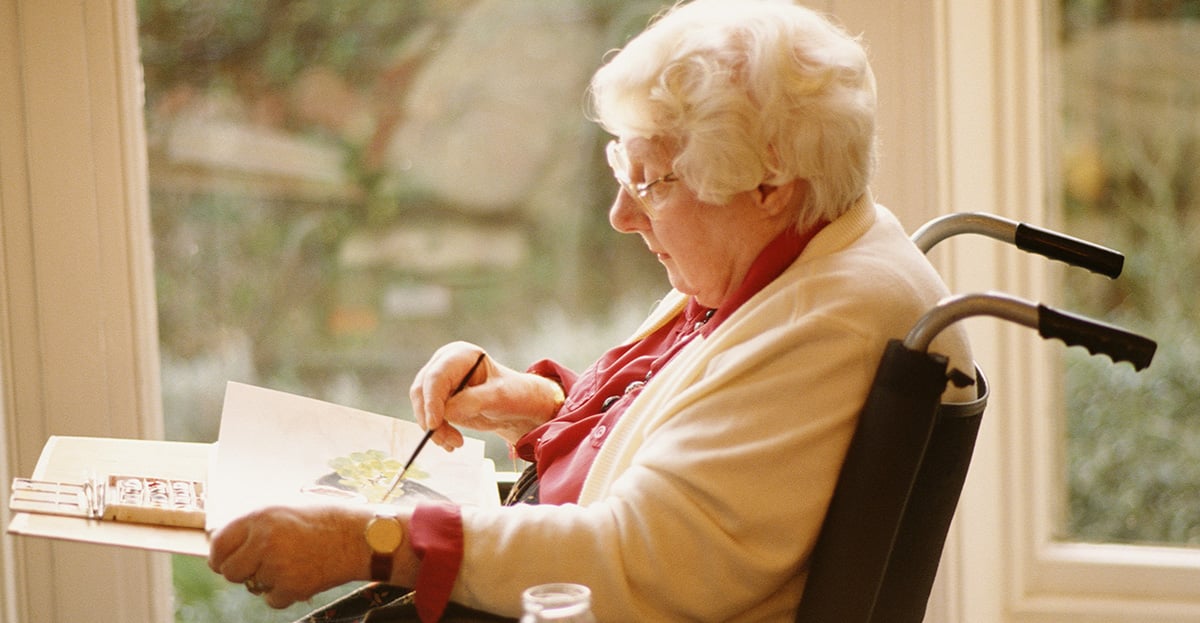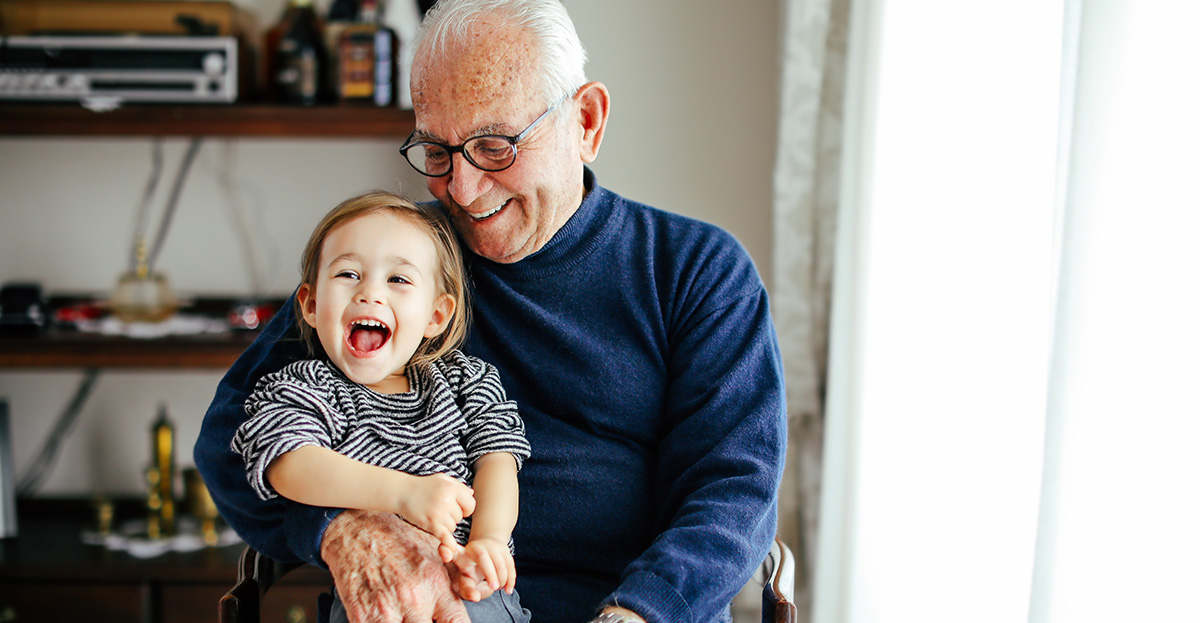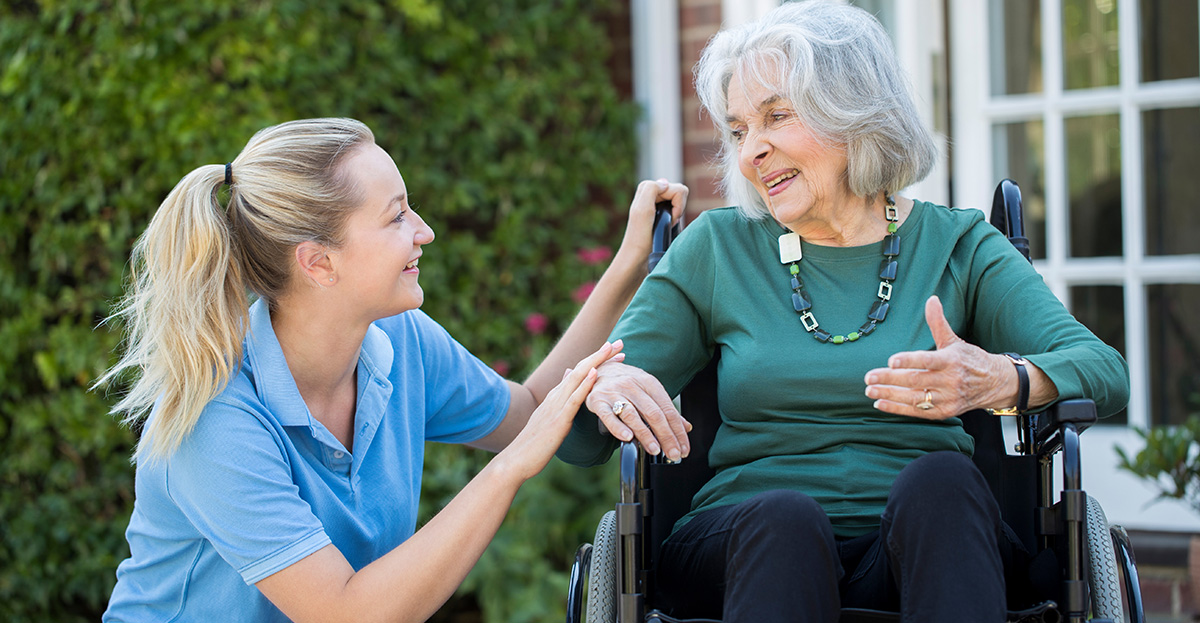4 Memory Care Activities for Seniors With Alzheimer’s or Dementia
Lola Danielson Amendt | May 22, 2023
Aging can come with its share of challenges, and as friends, family, and caretakers, we all want the best for our loved ones as they enter their later years. When signs of Alzheimer's disease and other forms of dementia start to appear, it can be hard to know how to support them. Luckily, there are a number of activities for memory care that help to slow memory loss and keep them engaged.
How Does Dementia Work?

The effects of Alzheimer’s, dementia, and other cognitive challenges occur in three stages:
Early Stage
In the mild (or early) stage, most people can function independently in many areas but will likely require assistance with some activities to maximize independence and remain safe. They may still be able to drive, work, and participate in their favorite activities.
Moderate Stage
In the moderate stage, which is often the longest stage, individuals may have difficulties communicating and performing routine tasks, including activities of daily living (such as bathing and dressing). Individuals may become incontinent and start having personality and behavioral changes like suspiciousness and agitation.
Late Stage
In the severe stage, individuals need help with activities of daily living and are likely to require around-the-clock care. The effects of Alzheimer’s disease on an individual’s physical health become especially apparent in this stage. Because of damage to areas of the brain involving movement, individuals may become bedbound and have difficulty swallowing, eating, and drinking.
Planning for Success
Knowing what stage your loved one is at will help determine which memory care activities are the most beneficial for them. It’s important to note how personalization makes memory care more effective. The more you can center activities around the individual and their likes and interests, the more successful they’ll be at slowing memory loss. This helps show how things they love can continue to be a part of their everyday lives.
Likewise, another benefit of memory care activities is creating a sense of inclusion and productivity for the individual. The more you cater the activity to their abilities, interests, and passions, the more it will make them feel productive and accomplished. So, be sure to set realistic expectations that would help their ability to succeed.
Memory Care Activities for Seniors
Being diagnosed with cognitive challenges doesn’t mean your loved one can’t still live a happy, engaged, and fulfilling life. Here are some of the best activities for people with dementia and Alzheimer’s.
1. Memory Stimulation

Memory stimulation activities are some of the best ways to preserve old memories, improve working memory, and emotionally process what’s happening around us in the context of what we’ve been through. The following activities help reduce stress and depression while reminding memory loss patients of all they’ve done:
- Keeping and using a memory journal to document life's best moments
- Creating a memory box with cherished items and keepsakes
- Creating a photo book to view moments, places, and memories
2. Sensory Stimulation

Sensory stimulation activities are those that keep the five senses active and sharp. Our senses are the oldest and most important tools humans have, and each one plays a vital role in helping us navigate the world around us. Though we don’t know how memories are made and stored, our senses are excellent resources for memory recall, as most memories are tied to a sense. Here are some great sensory stimulation activities that help reinforce cognitive memory:
- Aromatherapy with familiar scents
- Cooking and eating classic meals from the past
- Watching home videos, favorite movies, or educational documentaries
- Tactile stimulation, such as knitting, tying knots, or massaging the hands, feet, or neck
- Going for walks, stretching, and other forms of exercise and physical therapy
3. Artistic Expression

Artistic expression and creativity cure many things, including depression, anxiety, and memory loss. For those with dementia or Alzheimer’s, creative expression provides a sense of freedom, accomplishment, and relaxation. Below you’ll find a few great activities to help improve memory recall and function:
- Crafting photo collages
- Watercolor painting
- Creative coloring
- Solving puzzles
- Listening, singing, or dancing to music
- Gardening or caring for indoor plants
4. Socialization

Socialization helps us remember old memories, create new ones, and feel safer in our environment. It also gives us a sense of community and belonging, which helps affirm our place in the world. For those needing memory care, socialization offers a place to reminisce, share unique experiences, and learn from others’ journey with memory loss. The following socialization activities are effective ways to manage the effects of dementia:
- Group classes
- Small social gatherings with friends, family, and fellow residents
- Pet therapy visits
- Relaxing games
It is also important to note that overstimulation can cause unwanted panic, stress, and anxiety in some adults. Remember to ensure that socialization takes place in a safe, comfortable environment that can be controlled if sudden changes cause the individual to feel threatened or overwhelmed.
Memory Care Living Communities

Living communities that offer memory care are fantastic resources for families and loved ones suffering from Alzheimer’s, dementia, and other cognitive challenges. Walker Methodist offers compassionate, specialized memory care programs backed by the Alzheimer’s Association as well as short-term respite care options for caregivers who could use temporary relief.
Respite Care Programs at Walker Methodist
Respite care at Walker Methodist is offered in assisted living, memory care, and care suites and provides a level of support tailored to each individual’s needs. Respite care is typically utilized for brief stays, such as when recuperation time is needed after surgery or if a caregiver is on vacation. Respite care is an excellent option for seniors who require a temporary, caring place to stay. Our senior respite care includes:
- Stays for 7-60 days
- Fully furnished suites
- Daily chef-prepared meals and snacks
- Housekeeping, laundry service, and linen changes
- Social, spiritual, educational, and recreational activities
- Physical and occupational therapy and fitness center options
- Scheduled transportation
- Hospice stays
Memory Care Programs at Walker Methodist
Walker Methodist’s Kaleidoscope Memory Care program uses proven
therapies that allow residents to live each day with joy and peace. We bestow the same loving care we would extend to our family members to each guest and resident. Every member of our professional team is dedicated to personal respect and dignity for every resident. Our experienced healthcare specialists provide 24-hour comfort and care in custom-designed therapeutic settings. Our senior memory care programs include:
- Music & Memory
- Fitness Center
- Auxiliary Care
- Oral Health Program
- Culinary Services
Being a care partner is an overwhelming experience filled with many emotions. At Walker Methodist, we strive to partner with adult children, spouses, or the designated responsible caregiver to arrange for the best possible care arrangement given their situation. If you’re considering a memory care community for your loved one, we’re here to help guide you to the best option.

